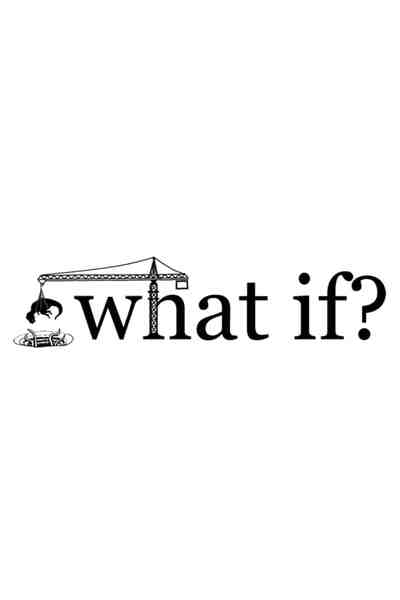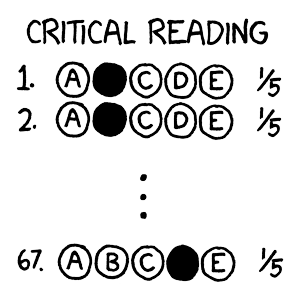—ROB BALDER
None.
The SAT is a standardized test given to high school students (similar to the ACT). The scoring is such that under certain circumstances, guessing an answer can be a good strategy. But what if you guessed on everything?
Not all of the SAT is multiple-choice, so let’s focus on the multiple choice questions to keep things simple. We’ll assume everyone gets the essay questions and fill-in-the-number sections correct.
There are 44 multiple-choice questions in the math (quantitative) section, 67 in the critical reading (qualitative) section, and 47 in the newfangled writing section. Each question has five options, so a random guess has a 20% chance of being right:
Although we all know the answer is always B.
The probability of getting all 158 questions is:
(That's one in twenty-seven quinquatrigintillion.)
If all four million 17-year-olds all took the SAT, and they all guessed randomly, it’s a statistical certainty that there would be no perfect scores on any of the three sections.
How certain is it? Well, if they each used a computer to take the test a million times each day, and continued this every day for five billion years—until the Sun expanded to a red giant and the Earth was charred to a cinder—the chance of any of them ever getting a perfect score on just the math section would be about 0.0001%.
How unlikely is that? Each year something like 500 Americans are struck by lightning[1][2] (based on an average of 45 lightning deaths and a 9-10% fatality rate). This suggests that the odds of any one American being hit in a given year are about one in in 700,000 (although probability can betricky).
This means that the odds of acing the SAT by guessing are worse than the odds of every living ex-President and every member of the main cast of Firefly all being independently struck by lightning … on the same day.
(Everyone survives but Alan Tudyk and Ron Glass)
To everyone taking the SAT this year, good luck—but it won’t be enough.











Comments (0)
See all